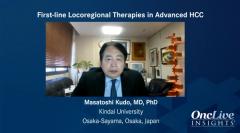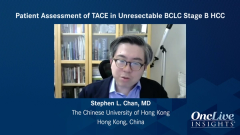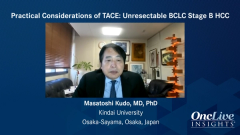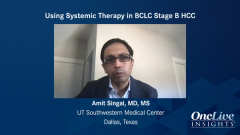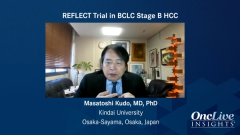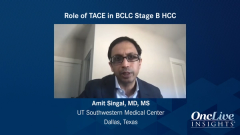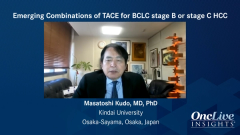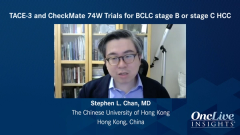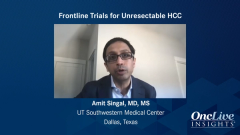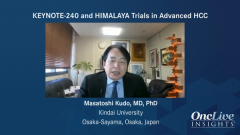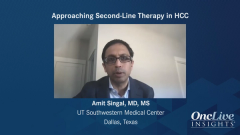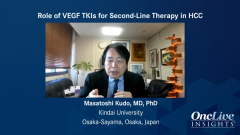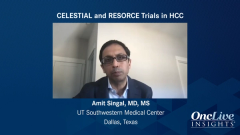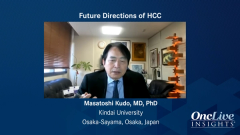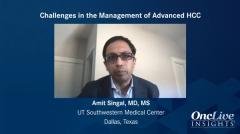
Challenges in the Management of Advanced HCC
Amit Singal, MD, MS, reviews challenges in the management of advanced hepatocellular carcinoma (HCC).
Episodes in this series

Amit Singal, MD, MS: When we think of HCC [hepatocellular carcinoma], one of the first things that we have to remember is that this is a disease within a disease. In the Western world, over 90% of patients who develop HCC do so in the setting of chronic liver disease, if not in the setting of cirrhosis. Every management decision we have for a patient with HCC has to consider the severity of the underlying cirrhosis, to see first if you can even treat the HCC, and then if so, what’s the appropriate management step.
The other thing that we have to think about when we consider HCC treatment is that this happens in a larger treatment landscape, and these treatments are being delivered by different providers. For example, if you’re found at an early stage, we have curative therapies available, such as surgical resection or liver transplantation. If you’re found with liver localized disease, we have locoregional therapies, such as TACE [transarterial chemoembolization] or radioembolization, which are often given by interventional radiologists. Then in the advanced stage setting, that’s where we have a lot of exciting advances in terms of systemic therapies, the TKIs [tyrosine kinase inhibitors], as well as the immune checkpoint inhibitors, typically given by medical oncology.
You then have to consider not only the underlying cirrhosis, but all of these different treatment options across the stages of tumor burden. This requires careful and thoughtful communication between all of these different providers to determine the best treatment strategy for that individual patient in front of you.
When we consider a patient with advanced stage HCC, it’s also important to remember that this is a very broad group of different patients that get clumped together into one single stage, the Barcelona Clinic Liver Cancer [BCLC] stage C. But it’s important to remember that there are multiple ways in which you can arrive at that BCLC stage C. For example, you could have vascular invasion, whether that’s branch or main, you could have distant metastases, or you can have some impacted performance status, so an ECOG score of 1 or 2 can get you into a BCLC stage C as well.
When we think of these patients, it’s not only important when we consider prognosis (ie, the expected median survival), but also our treatment approach for those patients. Specifically, when we think of patients who have vascular invasion, but limited vascular invasion, there are many centers that will continue to consider radioembolization in those patients in the hopes of downstaging that patient. Whereas those patients with main portal vein invasion, distant metastases, most, if not all centers would consider that patient more optimal to be treated with systemic therapy with the new immune checkpoint inhibitor-based therapies.
Transcript Edited for Clarity


